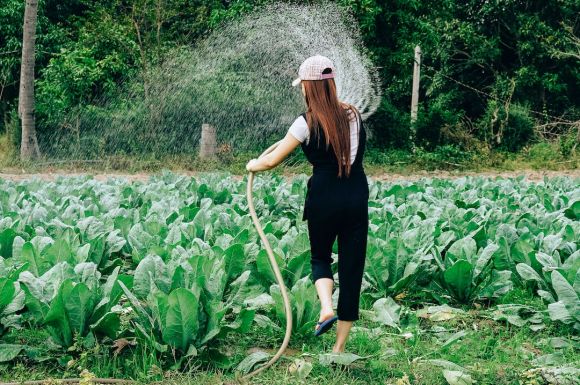Water is a precious resource, especially when it comes to agriculture. Proper irrigation is crucial for the healthy growth and development of crops. However, water scarcity and increasing water costs have made it necessary for farmers to optimize their irrigation practices. By adopting efficient water management techniques, farmers can ensure the sustainability of their crops while conserving water resources. In this article, we will explore some strategies for irrigation optimization that can help farmers achieve better results.
Understanding Crop Water Needs
One of the first steps in optimizing irrigation is to understand the water needs of different crops. Each crop has specific requirements, and over or under-irrigation can have detrimental effects on their growth. By studying the crop’s water requirements at different stages of growth, farmers can determine the ideal amount of water needed for irrigation. This knowledge can help them avoid overwatering or underwatering their crops, leading to improved yields and reduced water wastage.
Monitoring Soil Moisture
Another essential aspect of irrigation optimization is monitoring soil moisture. By regularly checking the moisture levels in the soil, farmers can ensure that their crops are receiving adequate water without wastage. There are various methods available for measuring soil moisture, including soil moisture sensors and tensiometers. These tools provide real-time data, enabling farmers to make informed decisions about irrigation scheduling and duration.
Implementing Drip Irrigation
Drip irrigation is a highly efficient method of delivering water directly to the roots of plants. Unlike traditional irrigation methods that spray water over a large area, drip irrigation targets individual plants, minimizing water wastage. This technique not only conserves water but also reduces the risk of diseases caused by excessive moisture on foliage. By adopting drip irrigation systems, farmers can optimize their water usage and improve crop health.
Using Mulching Techniques
Mulching involves covering the soil surface around plants with organic materials, such as straw or wood chips. This technique helps to retain moisture in the soil by preventing evaporation. Mulching also helps to regulate soil temperature, suppress weed growth, and improve soil fertility. By incorporating mulching techniques into their irrigation practices, farmers can reduce water loss due to evaporation and minimize the frequency of irrigation.
Employing Smart Irrigation Technologies
Advancements in technology have led to the development of smart irrigation systems that can optimize water usage. These systems use weather data, soil moisture sensors, and crop water requirements to automatically adjust irrigation schedules and amounts. By employing smart irrigation technologies, farmers can save water, energy, and labor while ensuring that their crops receive the necessary moisture for optimal growth.
Training Farmers on Best Practices
Effective irrigation optimization requires the knowledge and skills to implement the right practices. Therefore, it is crucial to provide farmers with training on efficient water management techniques. Training programs can cover topics such as crop water needs, irrigation scheduling, soil moisture monitoring, and the proper use of irrigation equipment. By empowering farmers with the necessary knowledge, they can make informed decisions about irrigation and contribute to sustainable water management.
Conclusion: A Greener Future
Efficient water management is essential for the sustainability of agriculture in a world facing water scarcity. By optimizing irrigation practices, farmers can conserve water resources while ensuring the health and productivity of their crops. Understanding crop water needs, monitoring soil moisture, implementing drip irrigation, using mulching techniques, employing smart irrigation technologies, and providing training to farmers are all crucial steps in achieving efficient water management. By adopting these strategies, we can work towards a greener future where agriculture and water resources coexist harmoniously.
